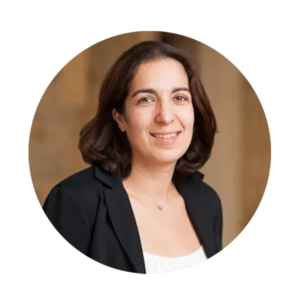Slides from event
Anna session 1
Jenny Hughes session 1
Anne Stewart session 2
Mina Fazel session 2
Anna session 2
Niki Cooper session 2
Despite teachers and schools being the front line on prevention of self-harm in young people, training and workshops for schools have been considered to be insufficient. Nearly three-quarters of teachers are reported to be involved in addressing adolescent self-harm, yet most of them expressed concern on how it should be handled. Therefore, the critical importance of providing clear, professional advice on addressing self-harm in schools should be considered a priority, so to propel the development of early interventions and well-being education.
Who should attend
These FREE sessions are an absolute must for those working in an educational setting. In particular; teachers, school nurses, pastoral support, senco’s, educational psychologists, those with an interest in suicide and self-harm, and those that work with children and young people affected with mental health issues.
Learning outcomes include
- An overview on self-harm in young people
- Insight on how self-harm could be addressed in schools
- Understand sources of support for young people who self-harm
Programme
Day 1 – Tuesday 15 June, 16.00 – 18.00 UK time
16.00 Welcome and introduction by Professor Tamsin Ford CBE
16.05 An overview of self-harm and suicide in young people – Dr. Jennifer Hughes
16.25 Therapeutic interventions available for young people who self-harm, sources of support for young people who self-harm – Dr. Dennis Ougrin
17.05 Lived experience from Anna
17.30 Q&A
18.00 Closing comments from Professor Tamsin Ford CBE
Day 2 – Tuesday 22 June, 16.00 – 18.00 UK time
16.00 Welcome and introduction by Dr. Dennis Ougrin
16.05 Self harm in young people: How can school staff respond? – Dr. Anne Stewart
16.25 Self harm in young people: scenarios illustrating strategic response strategies – Dr. Niki Cooper
16.45 The Oxwell survey – Assistant Professor Mina Fazel
17.05 Lived experience from Anna
17.30 Q&A
18.00 Closing comments from Professor Tamsin Ford CBE
About the speakers

Jennifer L. Hughes, Ph.D., M.P.H., is an Assistant Professor and Licensed Psychologist at the UT Southwestern Center for Depression Research and Clinical Care (CDRC). She is the head of the CDRC Risk and Resilience Network, which aims to build partnerships with local schools and youth community organizations to implement mental health promotion and suicide prevention programs, as well as to work together to better understand resilience and risk in youth. Dr. Hughes is also the Operations Lead for the UT Southwestern Texas Youth Depression and Suicide Research Network, an initiative of the Texas Child Mental Health Care Consortium. Dr. Hughes is currently on the Executive Board of the American Psychological Association Division 53 Society of Clinical Child and Adolescent Psychology (SCCAP) and served as a past Chair of the Association for Behavioral and Cognitive Therapies (ABCT) Child and Adolescent Depression Special Interest Group (SIG). Dr. Hughes was previously a psychologist at Children’s Health System of Texas, where she worked on the Inpatient Psychiatry Unit and with the Suicide Prevention and Resilience at Children’s (SPARC) Intensive Outpatient Program. Prior to working at Children’s, Dr. Hughes was a Clinical Instructor and Staff Psychologist in the University of California, Los Angeles (UCLA) Semel Institute for Neuroscience and Human Behavior and the Associate Director of the UCLA Youth Stress and Mood Program. Dr. Hughes received her Ph.D. in Clinical Psychology from UT Southwestern Medical Center in 2010 and completed her pre-doctoral internship through UT Southwestern Medical Center. Dr. Hughes is the recipient of a Young Investigator Grant from the American Foundation for Suicide Prevention to adapt and test an intervention designed to prevent future suicide attempts in adolescents. Broadly, Dr. Hughes’ research explores the efficacy and effectiveness of psychosocial treatments for building resilience, the prevention and treatment of youth depression, and addressing suicide in youth. Dr. Hughes recently delivered a TED talk for TEDxKids@SMU. For more information, please visit: http://profiles.utsouthwestern.edu/profile/59801/jennifer-hughes.ht

Dr. Ougrin graduated from a medical school in Ukraine in 1998 and came to England to undertake his post-graduate training. He completed his higher training in child and adolescent psychiatry at Guy’s and Maudsley and is currently a consultant Child and Adolescent Psychiatrist leading Supported Discharge Service at South London and Maudsley NHS Foundation Trust. Dr Ougrin is also a clinical senior lecturer at the Institute of Psychiatry, Psychology and Neuroscience. He leads a programme of information exchange between the UK and Ukraine. His main professional interests include prevention of Borderline Personality Disorder and effective interventions for self-harm. He is the author of Therapeutic Assessment, a novel model of assessment for young people with self-harm. He is the chief investigator of a randomised controlled trial of Supported Discharge Service versus Treatment as Usual in adolescents admitted for in-patient care and a principal investigator of a randomised controlled trial comparing intensive mental health intervention versus usual social care in Looked After Children. He also works on developing a modular psychotherapeutic intervention for self-harm and on understanding the pathophysiology of self-harm in young people.

Anne Stewart is a Consultant Child & Adolescent Psychiatrist with many years of clinical experience working in community and inpatient CAMHS. Over the years she has developed clinical and research interests in eating disorders and self-harm and was until recently the joint clinical lead for the CAMHS eating disorder service in Oxford. Recent publications in the area of self-harm focus on parental perspectives on self-harm, the impact of the internet, cyberbullying and co-morbidity of eating disorders and self-harm. She has a longstanding interest in early intervention in child and adolescent mental health and has worked closely with schools as past chair of the Oxfordshire Self-harm Forum. She has recently retired from full-time clinical work and is focusing on academic interests.

Niki is a trained counsellor who joined Place2Be in 2002 as a School Project Manager before moving into the Learning Team where she co-authored Place2Be’s Postgraduate Diploma course. As Head of Learning, she developed Place2Be’s professional qualifications pathway. She was appointed Clinical Director in 2019.

School-based mental health interventions is the current focus of my research. I am working with Oxford Health NHS Foundation Trust to develop better school-based mental health services for all children across Oxfordshire secondary schools. As part of this we are conducting an Online Pupil Survey for children in years 4 to 13. Schools can sign up here. I previously had an NIHR post-doctoral fellowship to develop a mental health toolbox for schools that any front-line worker, even if they do not have a mental health background, can utilise in the school setting. Refugee mental health needs have been a longstanding interest. I have conducted work on the epidemiology of and the risk and protective factors for mental health problems in refugee children, I am concerned about the psychological impacts of immigration detention and have an active interest in Narrative Exposure Therapy for PTSD. For Children’s Mental Health Week 2019 we have made a 6-part Podcast Series on Mental Health Interventions for Refugee Children aimed at anyone wanting to learn more about the needs of these children. Do listen! My clinical work is as a child and adolescent psychiatrist in the Department of Children’s Psychological Medicine at the Children’s Hospital, Oxford University Hospitals. Bio via Univerity of Oxford

Tamsin Ford is Professor of Child and Adolescent Psychiatry at the University of Cambridge. She is an internationally renowned Child Psychiatric Epidemiologist who researches the organisation, delivery, and effectiveness of services and interventions for children and young people’s mental health. She completed her core training in psychiatry on the Royal London Hospital Training rotation and at the Bethlem and Maudsley Hospitals and she completed her PhD at the Institute of Psychiatry, Kings College London. She moved to Exeter in 2007, leading a group of researchers whose work focuses on the effectiveness of services and interventions to support mental health and well-being of children and young people. She was an Editor for ACAMH’s journal CAMH six years, stepping down as lead editor in June 2014. She recently moved to the University of Cambridge. Tamsin’s research covers the full range of psychopathology and agencies, practitioners and interventions that relate to the mental health of children and young people. Every interaction with a child presents an opportunity to intervene to improve their developmental trajectory. Her work has direct relevance to policy, commissioning and practice.
Please note ACAMH Members are eligible for a CPD certificate for attending this event

